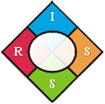Call for Papers IJCRS 2026
ABOUT THE CONFERENCE
Rough Sets were introduced by Zdzisław Pawlak in the early ’80s and developed further as a method of knowledge representation and
processing based on uncertain data and incompleteinformation. Nowadays, Rough Set theory is widely recognized to have great importance in several fields, including artificial intelligence, mathematics, knowledge representation and machine learning, as evidenced by the increasing number of works concerned with its applications and theoretical foundations. The aim of the IJCRS conferenceis to be the main location for disseminating novel foundational results and practical applications, enabling the discussion of problems and exchange of ideas, as well as bringing together academic and industrial perspectives, centred around rough sets and related disciplines.
TOPICS AND SCOPE OF THE CONFERENCE
Core rough set models and methods
Covering/Neighbourhood-based, Decision-theoretic, Dominance-based, Game-theoretic, Variable precision and Partialrough set models; Logic in rough set models; Rough-Bayesianmodels; Rough clustering; Roughcomputing; Roughmereology; Rough-set-based feature selection and Rule-based systems.
Related methods and hybridization
Anomally detection; Decision support systems; Dempster-Shafer theory; Formal concept analysis; Fuzzy sets; Fuzzy rough sets and rough fuzzy sets; Granular computing; intelligent agent models; interval computations; Nature-inspired computation models; Petri nets; Roughsets in data science, AI and machine learning; Three-way decision and data analysis, Topology and matroids; Approximate reasoning; Uncertainty theory; Cognitive computing;
Areas of application
Astronomy and atmosphericsciences; Big data analytics; Business intelligence; Bioinformatics; Image processing; Cybernetics and robotics; Financial markets; Interactive computing; Knowledge engineering and representation; Medicine; Retail and E-commerce; Natural Language processing; Risk monitoring; Semantic web; Smart cities; Telecommunications; Transportation and Web mining.
COMMITTEES
General Chairs
Chris Cornelis, Ghent University, Belgium
Jesús Medina, University of Cádiz, Spain
Dominik Slezak, QED Software & University of Warsaw, Poland
Program Chairs
Roberto G. Aragón, University of Cádiz, Spain
Jihong Wan, Guangdong University of Technology, China
Yiyu Yao, University of Regina, Canada
Local Organizer Committee
Fernando Chacón-Gómez, Celia Cordovilla
Sánchez, Carolina Díaz-Montarroso, David Lobo
Palacios, Nicolas Madrid Labrador, Samuel José
Molina Ruiz and Eloísa Ramírez-Poussa.
IMPORTANT DATES
Workshops and special session proposals:
Submission deadline: November 7, 2025.
Notification of acceptance: November 21, 2025.
Normal contributions (full papers):
Submission deadline: January 9, 2026.
Notification of acceptance: February 27, 2026.
Abstracts and Key Works:
Submission deadline: March 6, 2026.
Notification of acceptance: March 27, 2026.
Website:
